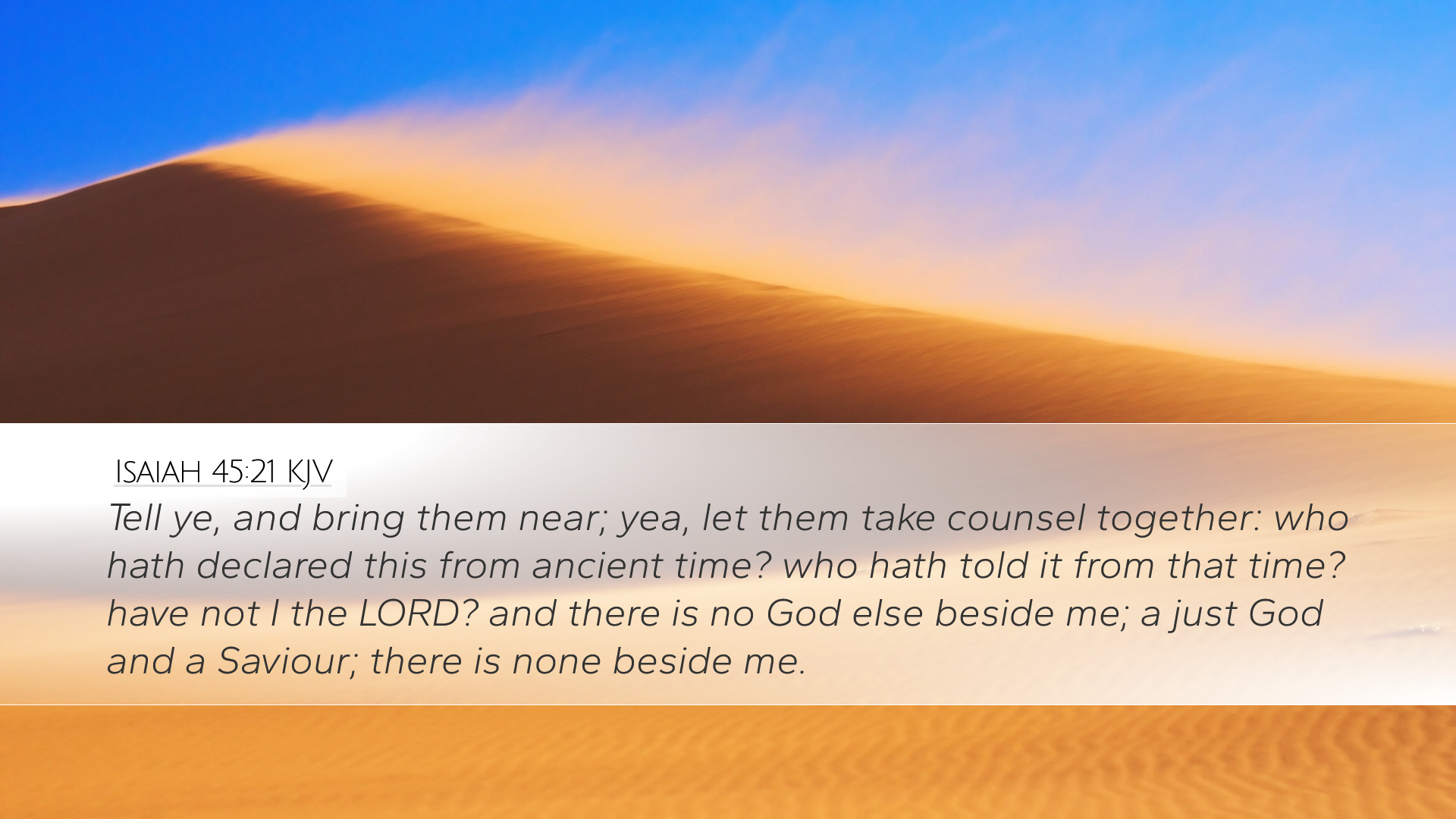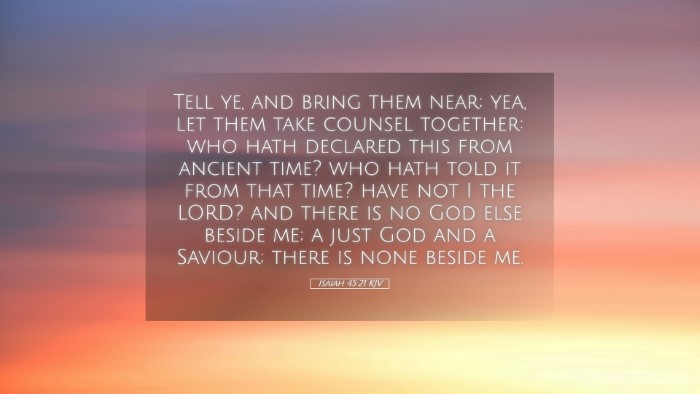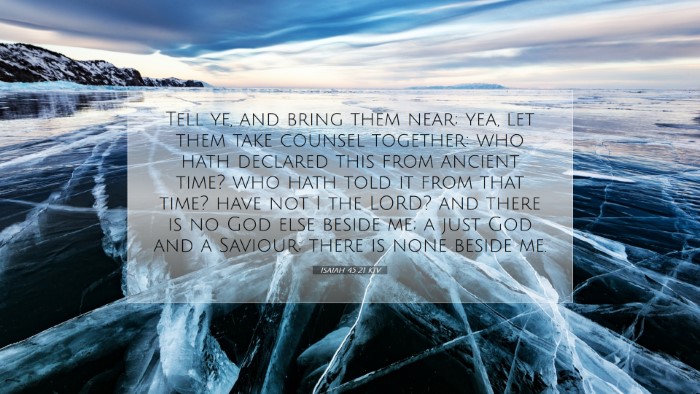Commentary on Isaiah 45:21
Verse: "Tell ye, and bring them near; yea, let them take counsel together: who hath declared this from ancient time? who hath told it from that time? have not I the LORD? and there is no God else beside me; a just God and a Saviour; there is none beside me."
Introduction
This verse from Isaiah 45:21 stands as a powerful declaration of God's sovereignty and uniqueness among the deities of the world. It is a call to acknowledgment of the Lord's unparalleled sovereignty and providence. In this commentary, we will explore the insights of notable public domain commentators like Matthew Henry, Albert Barnes, and Adam Clarke, while offering a comprehensive understanding relevant for pastors, students, theologians, and scholars.
Contextual Background
The book of Isaiah, authored by the prophet Isaiah, is often seen as both a book of prophecy and a source of great theological reflection. The prophecies are directed toward Israel but also engage with the surrounding nations. Isaiah 45 specifically is part of a larger oracle concerning Cyrus, the Persian king, whom God appointed to deliver Israel from Babylonian captivity. The chapter emphasizes the uniqueness of Yahweh, especially in contrast to the idols of the nations.
Analysis of Key Themes
1. The Sole Sovereignty of God
Matthew Henry's Perspective: Henry emphasizes the exclusivity of God’s role as Creator and Savior. He declares that only the LORD can unveil the mysteries of the past and the future. His sovereignty is uncontested, as all knowledge and prophesy derive from Him.
Albert Barnes' Insights: Barnes points out that the questions posed in this verse challenge the false beliefs that govern the nations. There is a rhetorical force to the questions which underscore the futility of idolatry when juxtaposed against the omniscience of God.
Adam Clarke's Interpretation: Clarke expands on the idea that God's declaration from 'ancient time' signifies His eternal existence and omnipotence. Unlike other gods who cannot foretell future events, the LORD has established His dominance through prophecies fulfilled.
2. Inquiry into Divine Revelation
The phrase “who hath declared this from ancient time?” invites an exploration into God’s continuous act of revealing truth. It indicates that God’s plans were established long before they were executed.
- The Role of Prophecy: Henry highlights that true prophecy stems from God alone, which serves as a testament to His divine authority.
- God as a Counselor: Barnes asserts that the call to “bring them near” signifies an invitation to seek divine counsel, highlighting God’s willingness to engage with humanity.
- God's Assurance: Clarke emphasizes that this affirmation reassures the faithful of God's control over history, directing them towards trust and reliance on Him.
3. The Nature of God as Just and Saving
The latter part of the verse focuses on God’s character as a 'just God' and 'Saviour'. This dual aspect portrays the integrity and the redemptive nature of God.
- Justice and Salvation: Henry reflects that God's justice does not negate His saving work, demonstrating that His righteousness works in harmony with His grace.
- Exclusive Nature of Salvation: Barnes emphasizes that this salvation is expressed through a personal relationship with the LORD. There is no alternative source of salvation apart from Him.
- Hope for the Believer: Clarke notes that the assurance of God as Savior should instill hope and confidence among those facing despair, reminding them of God’s unfailing commitment to His people.
Conclusion
Isaiah 45:21 encapsulates the heart of biblical theology, emphasizing the uniqueness and sovereignty of God while simultaneously presenting Him as a just and saving deity. The verse serves as an essential reminder for all who seek to understand God’s nature and His workings in human history.
This commentary sheds light on the vital truth that God alone declares the end from the beginning, and His plans are certain. For pastors, students, and scholars, this verse encourages a deep, theological reflection on God’s character, inspiring a commitment to share His truth with the world.


